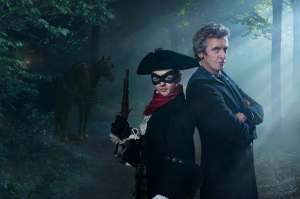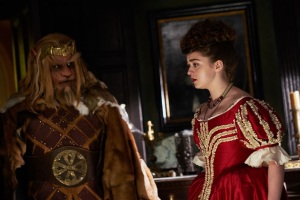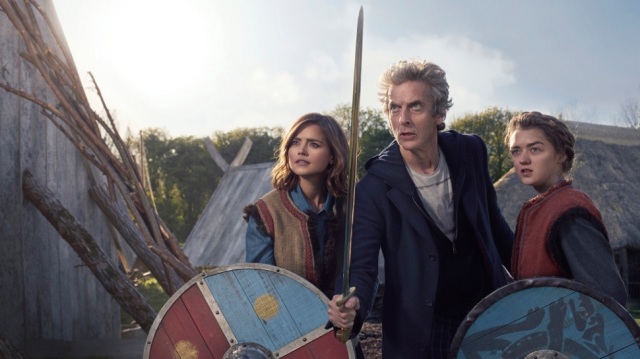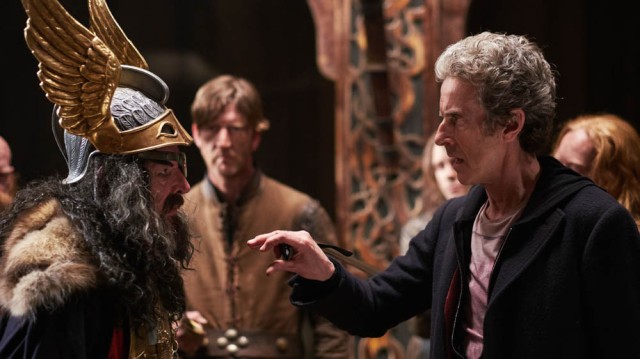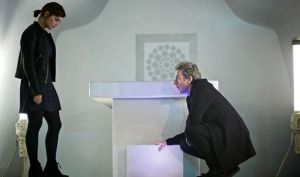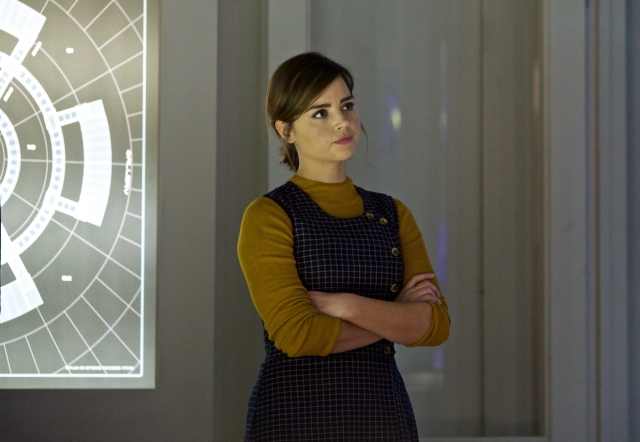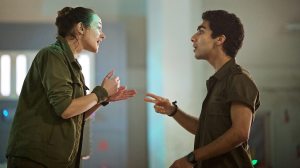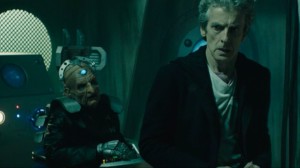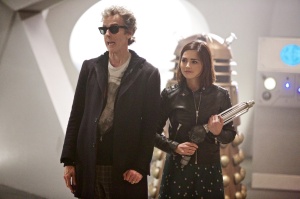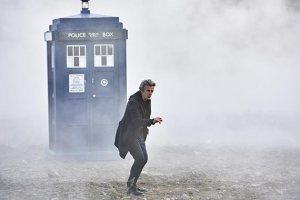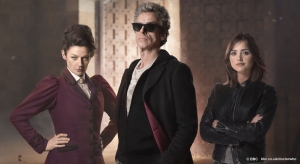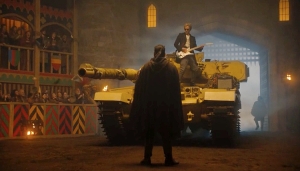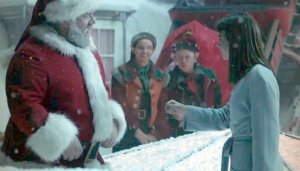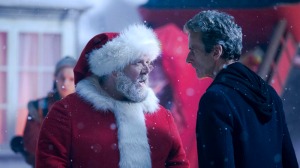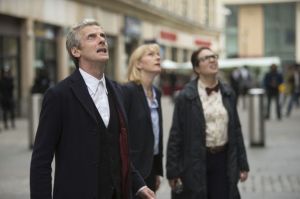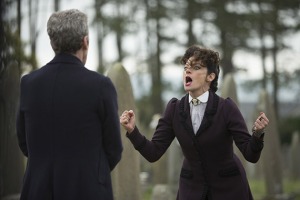At first glance, Arrival may seem like your typical alien invasion movie. It certainly has the setup for one, with twelve alien ships landing down on 12, seemingly random cities, and each country’s government sending out their military and a small team of scientists to figure out what the aliens are here to do. However, Arrival sidesteps a majority of alien invasion tropes, instead, offering an emotionally driven and thought provoking story with an final revelation that will fill you with wonder.
As previously noted, the setup is fairly simple. There are twelve alien spaceships that have all landed on Earth at the same time, over twelve random cities. Thankfully, this did not result in a full out attack by either side. Instead, the US government, as well as the rest of the world, decided to try to communicate with the alien species, referred to as Heptapods.
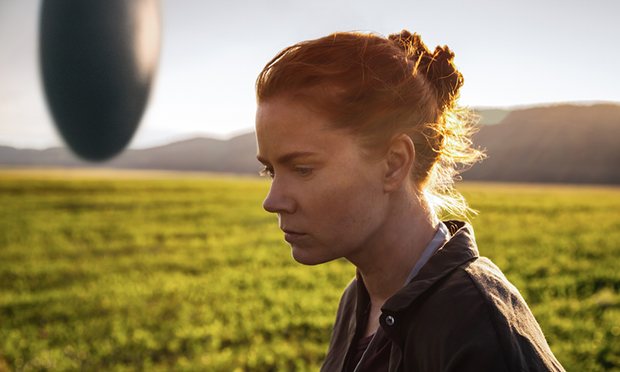
Amy Adams as Louise Banks, standing in front of one of twelve alien spacecrafts
The only problem is their language is completely different from that of any human, so the government brings in Louise Banks (Amy Adams), a linguist who has previous experience working with the government to translate classified intelligence. From the beginning of the movie, Louise is haunted by the loss of her daughter, Hannah, to a rare disease. While probably not intentional, it is reminiscent of Up, so yes, it is an emotional beginning. We later see flashbacks to Hannah, and how Louise’s memories of her daughter help her remember little things that clear her mind and aid in her translation and communication with the Heptapods.
Louise is teamed up with Ian (Jeremy Renner), a theoretical physicist, who initially seems to be there to offer a scientific perspective, but for most of the film is there as a sidekick to Louise. I particularly enjoyed the role of Colonel Weber (Forest Whitaker), because he played an intelligent character. Whereas lesser movies would make the military presence exist to essentially fight the aliens, he is fully on Louise’s side, taking the time to listen to her and understand her point of view. I fully enjoyed how these characters were all mature and intelligent, making them all likable while still being well defined.
Don’t expect anything to move at too fast of a pace here. The movie is a slow burner, spending a lot of time between Louse and the Heptapods, as she deciphers their language. This leads to an actual theory in the field of linguistics known as Sapir-Whorf , which in the context of the movie, implies Louise may be perceiving the world around her differently by being so consumed by the Heptapods’ language. This is an intriguing concept and is effectively woven into the story of Arrival.
There are times when the movie decides to broaden its scope beyond Louise and Ian, but it doesn’t work as well as I would have liked. Television news broadcasts show turmoil in various cities, with riots and looting happening all over the world. A few countries get less and less happy with the alien presence, and some bad translations and lack of understanding how they perceive the world compared to humans leads to the third acts final conflict.
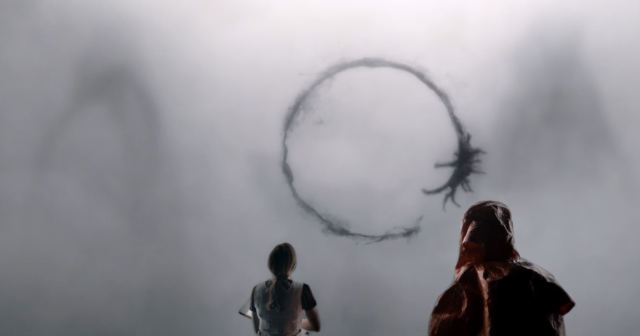
One of the many words translated throughout the movie
Coincidentally, this is when the big revelation occurs, which I will not even hint at, but can confirm it was pleasantly unexpected. This is likely due to the fact that I have watched a lot of science fiction movies and was expecting something somewhat uninspired to occur. Thankfully, this is not the case, and I do not believe I have seen such a profound final act in a science fiction movie since I watched Contact (though, I hear Interstellar has quite the ending as well). I can’t deny the ending did have one rushed element that did not make a whole lot of sense, but it did work, it just felt a bit rushed.
Ignoring some issues, the ending brought together themes of unity and perception as well as the notion of free will. Surprisingly, nothing was left up to interpretation, and the conclusion was very fulfilling. I was left in chills, being both overcome with wonder, happiness, and sadness after seeing how every thread was neatly tied together. This is science fiction at its finest, presenting big concepts and following through in a well thought out and mature manner.
If you value science fiction that is more than explosions and action or if you appreciate a truly emotional drama, I cannot recommend a better movie this year than Arrival.

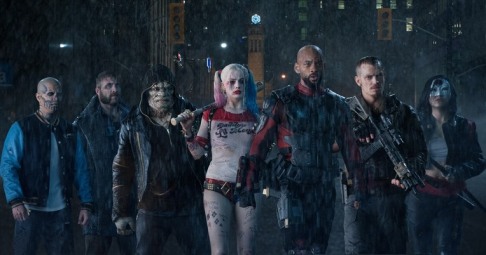
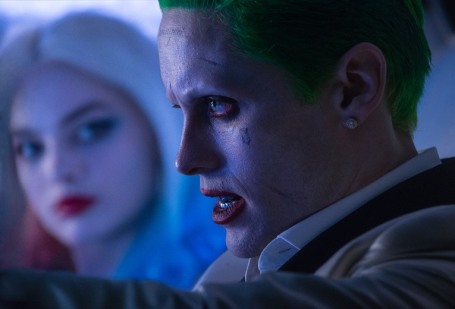
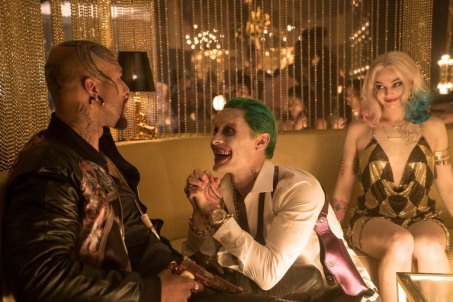
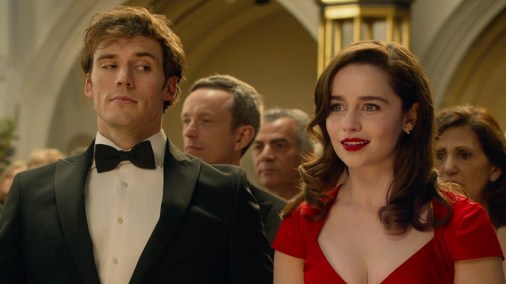
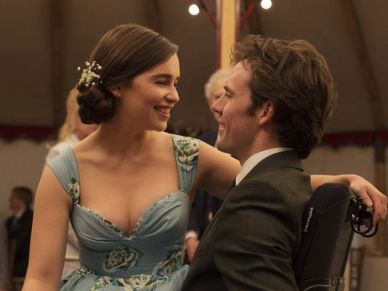 Midway through, you do basically know the ending. At that point, it becomes more about the journey. Luckily, there are plenty of entertaining scenes to keep the viewer interested. However, the actually ending doesn’t fully take advantage of the weight of the situation. The film discusses an important topic, but it is rarely explored, instead focusing on the relationship between Will and Lou. Sometimes Will’s parents, played by Janet McTeer and Charles Dance, start to explore moral and ethical issues, but that quickly gets pushed to the side. The better moral issues are brought up by Lou’s sister, Katrina (Jenna Coleman) and her dad, Bernard (Brendan Coyle), but they are more to do with whether or not Lou should continue seeing Will (both professionally and emotionally).
Midway through, you do basically know the ending. At that point, it becomes more about the journey. Luckily, there are plenty of entertaining scenes to keep the viewer interested. However, the actually ending doesn’t fully take advantage of the weight of the situation. The film discusses an important topic, but it is rarely explored, instead focusing on the relationship between Will and Lou. Sometimes Will’s parents, played by Janet McTeer and Charles Dance, start to explore moral and ethical issues, but that quickly gets pushed to the side. The better moral issues are brought up by Lou’s sister, Katrina (Jenna Coleman) and her dad, Bernard (Brendan Coyle), but they are more to do with whether or not Lou should continue seeing Will (both professionally and emotionally).